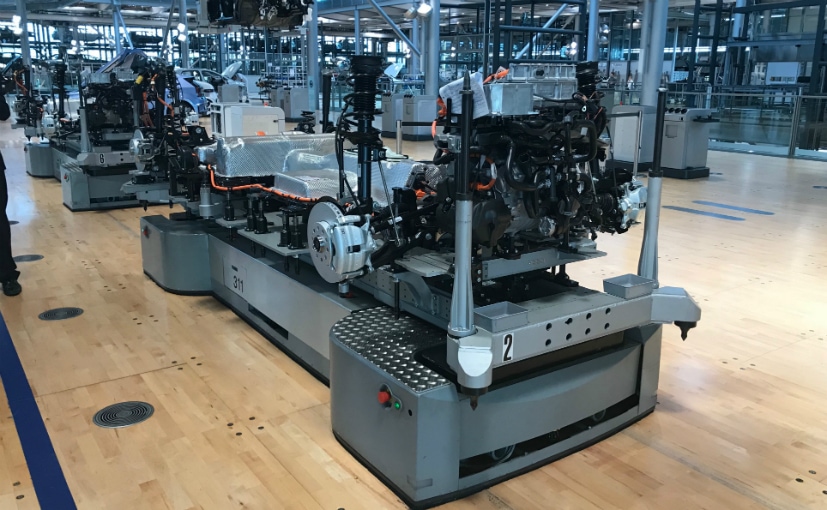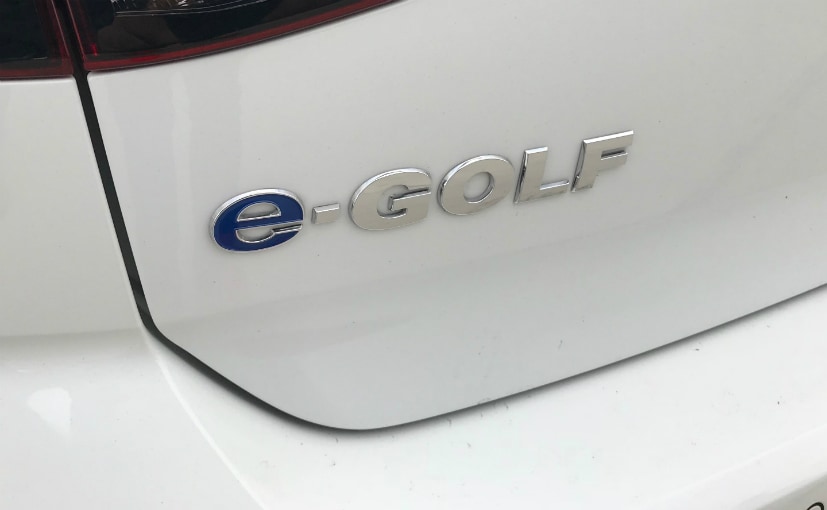Volkswagen Doubles e-Golf Production To Meet Demand

Highlights
- Volkswagen to increase production of the e-Golf due to high demand
- Volkswagen will make over 2000 e-Golfs every month
- The Dresden factory will now run in 2 shifts to meet demand
The electric car is here! And for the first time in automotive history, the demand for electric cars far outnumbers the supply for them. The Tesla Model 3 is the perfect example of this with hundreds of thousands of orders still pending and eager customers waiting for their brand new cars to be delivered. And another example is the very competent Volkswagen e-Golf. In fact, such is the demand for the electric hatchback that Volkswagen have announced that they will double the production soon. The e-Golf is currently made at Volkswagen's state of the art and self sustained 'glass factory' in Dresden.
Also Read: Volkswagen e-Golf Review

(Volkswagen eGolf manufacturing to be increased)
Volkswagen has announced that the glass factory (or transparent factory) will now be operational in 2-shifts as compared to a single shift that it has run on until now. The output is expected to double from 35 to 70 cars a day (upto 2100 cars a month) and will kick in from March 2018. The Volkswagen currently assembles the batteries for these e-Golf and Passat GTE models in a battery plant in Braunschweig. The output of the battery factory too will be raised to meet the demand of the cars manufactured in Dresden.

(Volkswagen eGolf badge)
The Volkswagen e-Golf is currently assembled on the MQB platform that has been adapted to fit in the batteries and the electric motor along with the charging ports that the car requires. Up front is the electric motor that makes a peak horsepower figure of 134 bhp and 290 Nm of torque. And since it is an electric motor, all that torque is available at 0 rpm or instantly as you put the foot down. The e-Golf is restricted to a top speed of 155 kmph and has a range of about 300 kms in test scenarios or about 250 kms in ideal driving conditions.
Latest News
Popular Volkswagen Models
 Volkswagen VirtusEx-Showroom Price₹ 10.89 - 19.15 Lakh
Volkswagen VirtusEx-Showroom Price₹ 10.89 - 19.15 Lakh Volkswagen TiguanEx-Showroom Price₹ 35.17 Lakh
Volkswagen TiguanEx-Showroom Price₹ 35.17 Lakh Volkswagen TaigunEx-Showroom Price₹ 11.7 - 19.74 Lakh
Volkswagen TaigunEx-Showroom Price₹ 11.7 - 19.74 Lakh Volkswagen New TiguanEx-Showroom Price₹ 35.17 Lakh
Volkswagen New TiguanEx-Showroom Price₹ 35.17 Lakh Volkswagen Tiguan R-LineEx-Showroom Price₹ 49 Lakh
Volkswagen Tiguan R-LineEx-Showroom Price₹ 49 Lakh Volkswagen Virtus GTEx-Showroom Price₹ 17.48 - 19.35 Lakh
Volkswagen Virtus GTEx-Showroom Price₹ 17.48 - 19.35 Lakh














